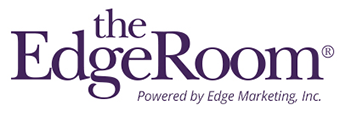Increasing investment in legal technology shows no signs of slowing down. In the Association of Corporate Counsel’s (ACC) 2023 Legal Technology Report, 78% of the respondents called legal technology a “must-have” and 2022 research from Gartner predicted technology will make up 12% of the average legal department’s budget by 2025. And while legal technology offerings like contract lifecycle management and e-billing often top the lists of most-used technologies, more and more legal departments are looking to outside counsel management tools.
That’s why we created an innovative outside counsel decision-making platform that empowers legal teams to make more confident hiring decisions when it comes to their outside counsel, preferred panels and law firm relationships. Scout uses artificial intelligence (AI) to do the heavy lifting to collect, structure and analyze law firm data, allowing legal operations professionals and in-house counsel to spend more time assessing key information and making decisions that provide ROI.
HOW DOES IT WORK?
Scout uses AI to quickly collect and analyze data from disparate sources, structuring it in a way that makes it easily searchable and digestible. For legal departments dealing with the growing pains of managing unstructured data, Scout can take that data in its current disorganized state, organize it and make it actionable.
After structuring the data, Scout puts all of the key information corporate legal departments need to make outside counsel decisions at their fingertips. The platform centralizes data in an intuitive user interface, making it easy to search, track, and review everything you need to make the right decision, whether that is information on expertise, experience, performance, locations, certifications (e.g., diversity) or anything else.
WHY BETTER OUTSIDE COUNSEL DATA MATTERS
Better data improves decision-making. This has been known in the business world for years. The largest companies in the world use data to make decisions that create more value, from determining where the next Starbucks location should be to improving training programs for Google employees.
Whether your legal team is in the initial stages of leveraging data for better decision-making or you already have a robust process, improving your outside counsel and legal services provider data makes an immediate impact on the business. Over $700 billion is spent every year on legal services across the globe and, chances are, a significant chunk of that legal spend could be optimized if the legal operations professionals and in-house counsel responsible for it had more insight into their options.
BENEFITS OF “DECISION-GRADE” OUTSIDE COUNSEL DATA
Legal departments at companies as large as the Fortune 10 use Scout to take their outside counsel data and make it “decision-grade.” What does that mean? It means by structuring outside counsel relationship data and bringing it into one intuitive platform, legal teams can confidently align their hiring and legal spend decisions with their organization’s goals, and spend less time doing it.
The benefits of using Scout to make your data “decision-grade” include:
Centralizing key information about outside counsel relationships. Law departments can get as granular as they like with data points, including combining information from billing systems, expertise and experience data, internal reviews and more. All of this data is searchable for law department users in Scout’s easy-to-use interface.
Clearly surfacing impactful data, such as performance reviews. Scout enables and tracks internal reviews of attorneys and firms, presenting them in a clear visual interface that can be understood at a glance. Additionally, users can build their own structured review process in the platform, ensuring important performance data is recorded at regular intervals, preserving institutional knowledge and improving future decision-making.
Quickly finding best-fit firms for new matters. Being able to compare factors such as expertise, location, rates, past performance and any other data points that are important to your legal team means you don’t have to go digging through spreadsheets and disparate systems to find the right provider for your next project. Beyond optimizing legal spend, companies can also align their hiring with important internal initiatives (e.g., finding law firms with diversity or environmental certifications).
THE IMPACT OF BETTER OUTSIDE COUNSEL DECISION-MAKING
Large companies use Scout to achieve their outside counsel hiring goals. As an early adopter, Hearst’s legal department finds that the platform helps them “more quickly and effectively identify the attorneys it needs for external legal work,” according to Legal Dive. In addition to finding the right fit for their new matters, Hearst also uses it to bolster other legal department initiatives, such as their outside counsel rate review process and diversity, equity and inclusion goals. The team also found that implementing Scout saved them an estimated 325 hours annually—roughly two months of work for a full-time employee.
And, while cost savings were not the primary goal of their Scout implementation, both An Trotter, Senior Director of Operations in Hearst’s Office of the General Counsel, and Jessica Williams, former Senior Operations Manager (who recently moved to FanDuel as Director of Legal Team Strategy and Operations), agreed that it’s helpful for that goal. “The sooner you’re getting lawyers on a case and the sooner you’re getting them integrated into that case, the better your end results are going to be,” Williams explained.
If you’re curious how you can supercharge your outside counsel data collection and analysis project with an AI-enhanced platform like Scout, request a demo.



